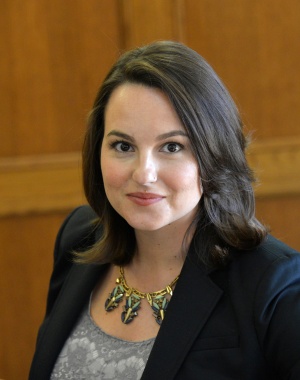Dean's Symposium - Communicating Climate Change: Policymakers, Advocates, and Public Opinion
Speaker
Kara Cook, Donna Givens Davidson, Mike Shriberg, Kaitlin RaimiDate & time
Location
Have a question for our panel? Submit your question at: https://myumi.ch/4rPZ4
Climate change is often described as a wicked problem, one with many interdependent, changing, and thorny factors to solve. For policymakers, this often means balancing complex and sometimes competing preferences from a range of stakeholders, both responding to those voices and communicating about policies in ways that will resonate with a wide range of audiences. In a conversation moderated by Ford School Associate Professor Kaitlin Raimi, Mike Shriberg from the School on Environment and Sustainability, and Kara Cook, chief of staff of the Michigan Department of the Environment, Great Lakes, and Energy, and others, will discuss the way that climate change policies are influenced by messages from climate activists and the public, and about the messages those policymakers communicate about climate change themselves.
This event is part of the Dean's Symposium. For more information about the other panels and keynotes, please click here.
From the speaker's bios:
Kara Cook is chief of staff for the Michigan Department of the Environment, Great Lakes, an Energy (EGLE). She has worked in various roles within the executive office, most recently serving as a senior policy advisor to Governor Gretchen Whitmer focused in the areas of energy and environmental protection. Before joining the Executive Office of the Governor, Kara served on the Whitmer-Gilchrist transition, where she helped set an agenda for the Governor’s first 100 days in office. Previously, she worked in government affairs at the Michigan League of Conservation Voters. Cook holds a Bachelor of Science in Political Science from Grand Valley State University.
Donna Givens Davidson has over 35 years’ nonprofit leadership experience in areas of youth and family development, community economic development, community partnerships, and community education. Over the years, she has developed and implemented demonstration programs and worked in partnership with a number of
organizations with the consistent goal of increasing opportunity, building capacity, and fostering growth.
She now serves as President and CEO of Eastside Community Network as well as Lecturer at Columbia University School of Professional Studies. Ms. Givens Davidson co-hosts a weekly podcast, Authentically Detroit with Orlando Bailey. She has a Masters of Ed Leadership from Wayne State University and a Bachelor of Arts in Political Science from the University of Michigan.
Mike Shriberg's work focuses on water issues in the Great Lakes, local and state energy policy, campus sustainability/carbon neutrality and environmental leadership. Prior to coming to SEAS, he was the Great Lakes regional executive director at the National Wildlife Federation. Major initiatives included leading advocacy for federal Great Lakes restoration efforts; ensuring water affordability and access; preventing the introduction of aquatic invasive species; reforming Great Lakes water management; building resilience of the Great Lakes from climate change; combating environmental injustice in the region; and engaging urban youth in nature-based education and activities.
Kaitlin Raimi is an associate professor of public policy at the Ford School. As a social/environmental psychologist, her interests center on how individuals can promote or prevent sustainable behaviors and policies. She has three broad areas of research: (1) how people compare their own beliefs and behaviors to others, (2) how adopting one pro-environmental behavior affects later action, and (3) how climate change communication affects people’s understanding, behaviors, and support for climate policies and technologies.

